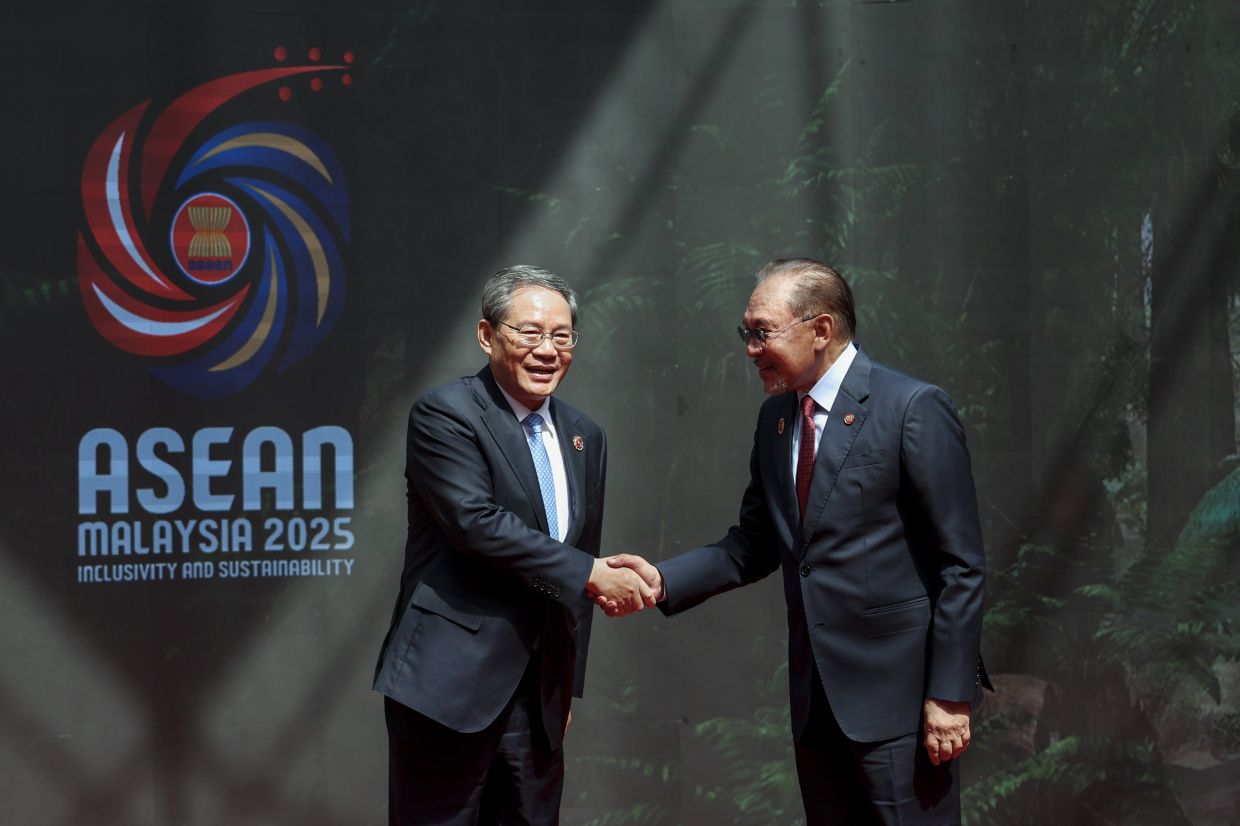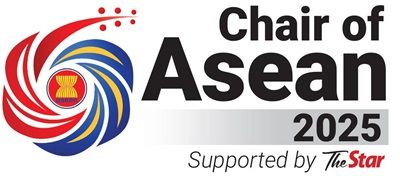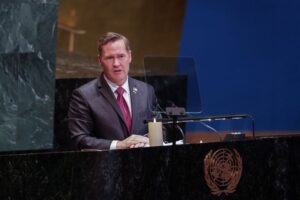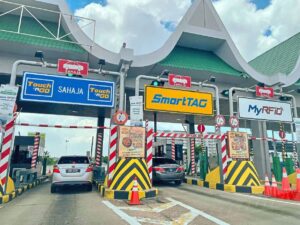KUALA LUMPUR: East Asian nations must uphold openness and cooperation to safeguard regional growth and resist protectionism, said Chinese Premier Li Qiang.
Li said this at the 28th Asean Plus Three Summit held on the sidelines of the 47th Asean Summit in Kuala Lumpur.
He said the region’s past economic gains were built on openness and collective resilience.
“East Asia has created one economic miracle after another,” he said.
He recalled Japan’s post-war boom, the rise of the Four Asian Tigers, and the rapid growth of China and South East Asia.
“Our modern cities rose from the ground, and our societies were transformed,” he said.
“These achievements remain a source of pride for all of us,” added Li.
Li warned that the global environment is now more complex and unstable.
He pointed to high tariffs and external disruptions that undermine confidence and supply chain stability.
“Challenges are growing, and uncertainty is clearly on the rise. We must draw wisdom and strength from our history,” said Li.
“Openness and cooperation are what allowed East Asia to thrive,” he added.
He alluded to geopolitical rivalries and tariff measures without naming any country.
“It was because we insisted on openness and cooperation that we could transcend differences in our systems,” he said.
He said this helped avoid politicising economic problems and kept growth steady.
“Openness and cooperation are precious common experiences we must cherish and uphold.They should remain East Asia’s most distinctive advantage,” he added.
Li said the centre of global growth is shifting towards Asia, particularly East Asia.
“The East Asian miracle is not a story of the past, but a continuing chapter. China stands ready to align its development strategies with all partners,” he added.
He said China will strengthen connectivity and create a brighter future for East Asia.
Japan’s Foreign Minister Toshimitsu Motegi echoed the call for regional solidarity.
He emphasised Japan’s role in strengthening East Asia’s financial safety nets and recalled the
APT framework was born in Kuala Lumpur in 1997 during the Asian Financial Crisis.
Motegi reaffirmed Japan’s leadership in the Chiang Mai Initiative and its new Emergency Financing Facility.
“Through initiatives such as the Chiang Mai Initiative and disaster risk financing, Japan contributes to regional stability and prosperity,” he said.
Motegi said Tokyo will continue to lead on food security and disaster response.
He sought to link Japan’s Free and Open Indo Pacific with the Asean Outlook on the Indo Pacific as
both share principles of inclusivity and openness.
“Japan fully supports AOIP and will advance efforts to mainstream it within the Asean Plus Three framework,” he said.
He said Tokyo will continue close cooperation with China and Korea.
South Korean President Lee Jae-myung urged deeper cooperation to confront new threats.
He cited economic fragmentation and transnational crime as rising concerns.
“After 30 years, we face new challenges such as protectionism and the reconfiguration of global supply chains,” he said.
“In this context, strengthening intra regional economic and financial cooperation at this Asean Plus Three Summit is very timely,” he added.
Lee then said that organised crime networks undermine public safety.
“Transnational crime is threatening the safety and daily lives of many people,” he said.
“Korea will continue to work closely with Asean to strengthen our response systems and eradicate these criminal networks,” he added.
He said Asean Plus Three accounts for about 30% of the world’s population and a quarter of global economic activity and added that it must play a leading role in achieving the Asean Community Vision 2045.
Lee then said the forum should sustain East Asia’s peace and prosperity.
The APT Summit gathers leaders from Asean, China, Japan and South Korea.
It advances regional cooperation in trade, finance and security.
Discussions are expected to reinforce supply chain connectivity, economic resilience and sustainable development.
Launched in 1997 after the Asian Financial Crisis, the APT process remains a cornerstone of regional architecture.
It aims to strengthen economic stability and deepen East Asian integration.







